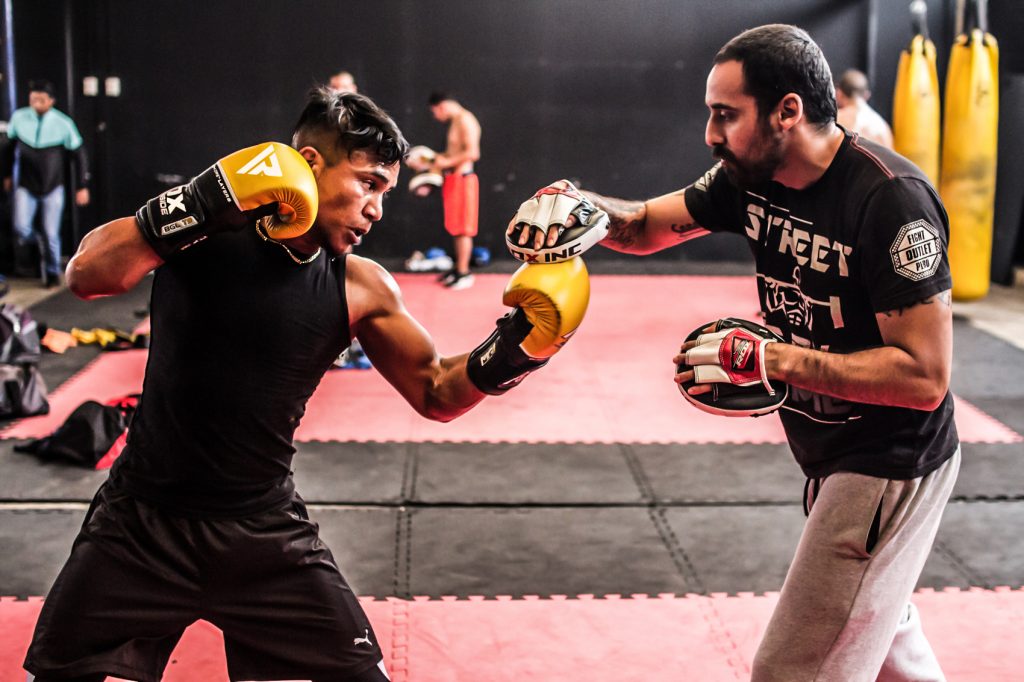Every combat sports athlete knows how tough it can be to get to your target weight before the official weigh in. Fighters sometimes have to cut weight in a hurry and lose up to 30lbs in the span of 48 hours.
Seems impossible, but fighters do it all the time.
For those who don’t know what the term means. Cutting weight refers to the process where fighters have to lose weight rapidly before a fight to qualify for the weight class the fight is set in.
Fighters dehydrate and even starve their bodies to meet their weight goals.
In amateur fighting competitions, cutting weight can be harmful as there aren’t qualified trainers and dietitians to look out for you.
The harm can result in consequences on fight day, as cutting weight leaves you weak and disoriented from the rapid weight loss that the body can’t handle. If you don’t do it right, you’re definitely setting yourself up for a world of hurt.
Simple Essentials to Cut Weight
We’re going to share a series of articles with professional and amateur fighters so they have all the information on how to cut weight.
We will start with sharing 3 simple tips that are essential to a healthy weight cut. Cutting weight should never be done on your own. Have your coach, training buddy or anyone that is in your corner help you with it. You want someone to spot you through one of the most grueling experiences you could ever put your body through.
Adopt the following practices to cut weight and still be at your healthiest come fight day:
Eat Healthy
That is correct, you don’t have to starve yourself. You only have to know what to eat and what not to.
Clean up your diet, you should already be half way there if you are serious about being an athlete. There is no room for unhealthy eating in the life of a fighter. Your body needs fuel, not junk.
Clean proteins and good carbohydrates should be all you are eating. Keep a track of your calorie intake because you will be needing a lot of them when you are in training camp.
For example, 50{317a7769e272dec17b69bda26c6a5a4c5e6799efcd8a85f72cb552b76862c2b9} of your 4000 a day calorie diet should be carbohydrates in the form of beans, fruits, and oatmeal.
The rest should be proteins in foods like lean beef, chicken, eggs, and protein shakes.
The weight should be about 10lbs over your fight weight class.
This way you won’t have to go to extraordinary measures to cut weight.
An appointment with a nutritionist would be wonderful if you can manage.
Slow and Steady
Whichever sport you are a part of – boxing, MMA, kickboxing, etc. – you will have to cut some weight before competition.
Keep that in mind and cut the remaining pounds at a slow pace.
If you try to lose 10lbs or more in the last couple of days, then it could land you in a hospital instead of a ring.
The best practice would start losing weight as soon as you join training camp. Adhere to a strict diet and avoid sodium because it retains water weight inside your body.
Your weight will fluctuate every day because you are partaking in grueling training and exercises so keep a close eye on it. If you have a coach, then have him keep a track of the weight and remind you about how much weight you have to lose when the time comes.
This way you will know how much weight you have to lose before the weigh in.
If you do have to lose weight that quickly you should:
• Not eat any fruit or sugars. Cut carbs down to a minimal.
• Cut water intake to only 0.5 gallons a day.
• Sit in a sauna or get a sauna suit.
Avoid Dehydration
You don’t have to cut your water intake during the training.
Some athletes are given bad advice of cutting their water intake when they train; that is terrible advice. Drink plenty of water as your muscles need the hydration. Some athletes train more than once a day, which requires them to drink more and more water.
When there are only a few days left until the fight, cut down on your water intake. You should:
• Drink 0.5 to 0.25 gallons of water a day.
• Ration your water. Drink small amounts throughout the day.
• Rest and avoid strenuous activities.
After the weigh in, you will have time to rehydrate your body. That will be the most important thing you do before the fight.
A body that is not hydrated is weak and you don’t want to be in a ring when you are feeling that way – it’s a recipe for disaster.
Remember these essentials when you join your training camp.
Avoid unhealthy habits and remember that your body needs to be as strong as possible on the day of the fight. It needs to be able to absorb the hits of the opponents and your muscles need to be flexible so you can be agile in the ring or cage.

